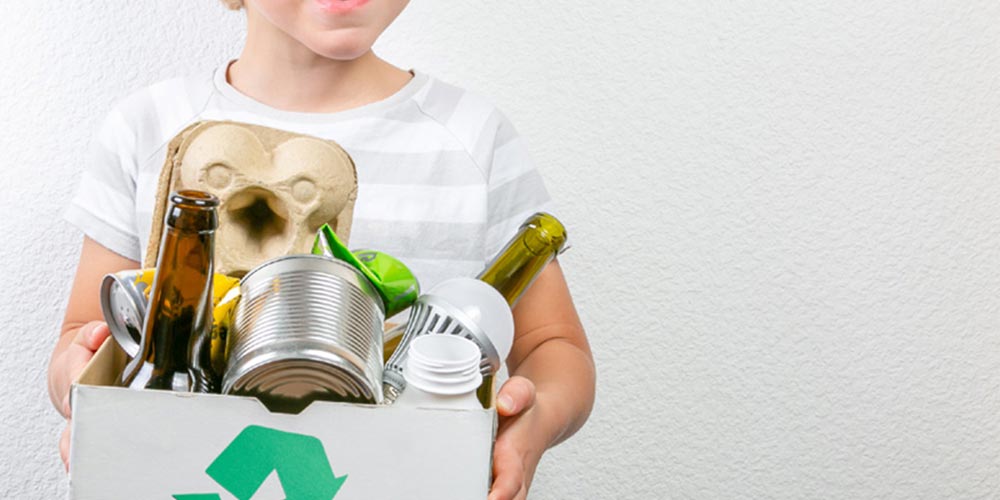
Waste management has become a significant industry in the UK and worldwide. As our landfills expand, threatening the ecology of our planet with harmful carbon emissions, innovative solutions to rubbish removal are important now more than ever. Rubbish removal services that prioritise environmentally friendly methods have a crucial role to play in the future of waste management. Here are four ways to handle trash and refuse in an eco-friendly way.
Recycle
Recycling waste seems like the most obvious answer. The benefits of recycling for the environment are widely known, and around 75% of all waste is recyclable. The overall recycling rate among households remains low, though. At 44.7%, the household recycling rate in England dropped in 2018 by 0.5 percentage points from 2017.
If three-quarters of the waste we generate is able to be recycled, then why aren’t we recycling more? Generally, there’s a lack of information regarding recycling and collection. Many people simply aren’t aware of which materials can be recycled and which cannot. This often leads to improper sorting or worse – throwing recyclable materials in the bin with residual waste.
A conscientious rubbish removal company such as Commercial Waste Solutions WasteClear will be fully aware of local and federal regulations on recycling. They’ll also aim to recycle as much of the waste they collect as possible. When you hire such services that are concerned about environmental impact, you can take confidence in their knowledge of proper recycling. If you don’t want the headache of sorting your waste, let the professionals do it for you.
Reuse
Reusing is similar to recycling in that you’re using an old item for a new purpose, or using it again. Reusing doesn’t involve sorting materials and putting them in their proper recycling receptacles, however. You could reuse your old furniture by adding new upholstery. You could “reuse” a broken kitchen appliance by attempting to repair it, rather than throwing it out and buying a new one.
Reusing often deals with bulkier items like furniture, appliances, computer equipment, clothes, bicycles, mobile phones, tablets, or anything you can’t feasibly set out on the kerb for waste collection. Apart from reusing old items yourself, you could also donate them to a Household Recycling and Reuse Centre. These centres are located all over the UK and accept bulky items you no longer want.
Environmentally conscious waste management companies will be in contact with your local charities as well as recycling centres, to coordinate the donation of refused items. If you’re unsure where to go or if the centre will even accept your items, then rubbish removal experts can take care of it for you.
Compost
To deal with organic and food waste, composting is a great option. Waste management facilities use Windrow composting and In-Vessel composting to manage food and garden waste, creating fertiliser that can be used in gardens. You can start composting at home as well, to reduce your carbon footprint.
All you need to get started are some nitrogen-rich materials, carbon-rich materials, and a container to put them in. Nitrogen-rich materials are the green and soft waste that can come from vegetables, for example. Carbon-rich materials are woody, dry, and brown. Add both types of materials to your compost container, keeping the carbon-rich at the bottom.
Once the container is filled, allow to heat up and then wait a week for it to cool back down. Mix it together and try to shred it into small pieces as much as you can. You can use the compost you’ve created in your own garden or donate it to a public garden.
Anaerobic Digestion
Anaerobic Digestion is a process used to break down kitchen and food waste and turn it into fuel. Your kitchen rubbish is taken to a waste treatment facility where it is mixed together, heated, and stirred in an airtight container.
This produces methane and carbon dioxide gases, which are used as fuel for heat and power. There’s also some leftover liquid at the end of the process, which is used as fertiliser. Instead of letting food waste go to a landfill, where it contributes further to environmental degradation, it can be reused for energy.
Final Words on Environmental Rubbish Removal
The amount of waste we generate is a threat to our environment. It’s down to each household and each business to change its waste disposal habits if we want to ensure a sustainable future. Coordinating with a professional waste removal service can aid you in your attempts to reduce your ecological impact, especially if you’re unfamiliar with your local recycling regulations. Trash removal can be done in an environmentally safe way, we just have to commit ourselves to do so.
